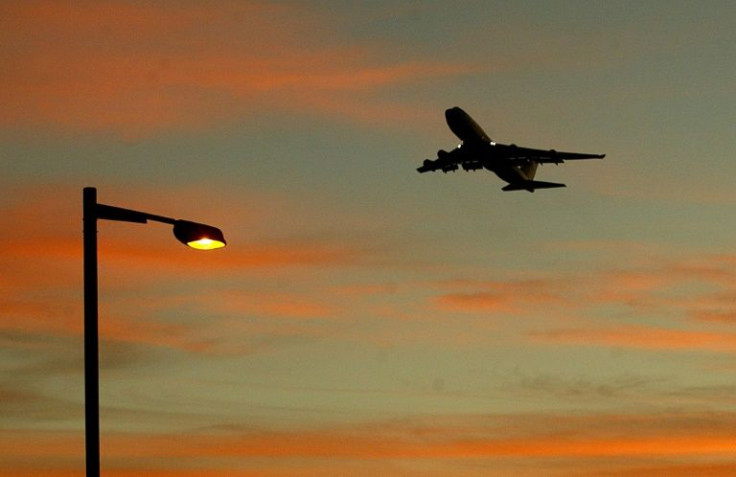Climate And Covid Recovery Loom Large Over Dubai Air Show
The embattled aviation industry will flock to a major air show in Dubai on Sunday as it emerges from pandemic travel restrictions and faces pressure to reduce its impact on climate change.
The five-day event in the United Arab Emirates will be the industry's first large gathering since Covid-19 clipped the sector's wings last year, when border closures left airports deserted and hundreds of aircraft idle.
Air traffic has bounced back since then, though it was still 53 percent lower in September than its pre-pandemic levels.
Air shows usually serve as a platform for companies to announce orders of aircraft, but expectations are muted in Dubai.
"I won't be surprised to see some announcements," said International Air Transport Association Director General Willie Walsh.
"There are always some surprises at these airshows but I don't expect anything out of the ordinary to be announced," he said.
Airlines are still deep in the red, with losses expected to extend by another $51.8 billion (45.2 billion euros) this year, according to IATA.
International travel has picked up gingerly as some countries have been slower at reopening their borders than others.
The United States lifted its restrictions to allow vaccinated visitors this month while China has yet to fully unlock its doors.
Domestic travel has been a brighter note as people, unable to go abroad, have taken holidays within their borders.
"Generally domestic markets are performing well, reinforcing our view that once the travel restrictions are removed we can see strong passenger demand," Walsh said.
Air traffic is only expected to return to pre-crisis levels between 2023 and 2025.
Despite the headwinds, US aerospace giant Boeing and European rival Airbus are bringing their star aircraft to Dubai.

Airbus will show off its A321neo -- the latest model in Airbus's A320 narrow-body series -- and its twin-aisle A350.
Boeing is bringing its 787 Dreamliner and 737 MAX, which has returned to service following a worldwide grounding after two fatal crashes.
The US company is also sending its newest aircraft, the wide-body 777X, to Dubai from Seattle, though it has yet to be certified for commercial use by civil aviation authorities.
The Middle East is a key market for Boeing as two-thirds of orders for the 777X have been made by three airlines: Emirates, Etihad and Qatar Airways.
Boeing could announce a cargo version of the 777X after this summer's unveiling of a freight model of the A350.
The aviation industry has weathered the global supply chain crisis that has created headaches for the shipping industry.
"Boeing needs good news and to announce new things," said AIR consultancy's Michel Merluzeau.
The 737 MAX is not the only plane that has caused problems for Boeing. The company has found fuselage problems on the 787 and faced a delay in the timeframe for the 777X.
Aviation's role in climate change also casts a shadow over Dubai, which takes place two days after the COP26 summit in Glasgow, Scotland.
Boeing will present its ecoDemonstrator aircraft, a version of the 737 MAX used to try out new and cleaner technologies, including those that reduce fuel use and emissions.
Airbus will present a model of its ZEROe concept airplane, which could be ready in 2035 and would not emit CO2 as it would burn hydrogen instead of kerosene.
In October IATA, which represents 290 airlines accounting for 83 percent of global air traffic, made a pledge of net zero carbon emissions by 2050.
Airlines will have to invest in newer planes that pollute less to meet their target.
The Dubai air show will also be an opportunity for the defence industry to present its latest hardware, with countries such as the United States and France showing off helicopters, refuelling planes and fighter-bombers.
© Copyright AFP 2024. All rights reserved.











